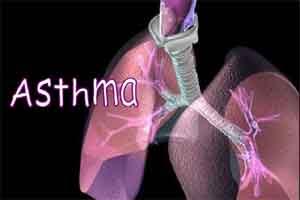- Home
- Editorial
- News
- Practice Guidelines
- Anesthesiology Guidelines
- Cancer Guidelines
- Cardiac Sciences Guidelines
- Critical Care Guidelines
- Dentistry Guidelines
- Dermatology Guidelines
- Diabetes and Endo Guidelines
- Diagnostics Guidelines
- ENT Guidelines
- Featured Practice Guidelines
- Gastroenterology Guidelines
- Geriatrics Guidelines
- Medicine Guidelines
- Nephrology Guidelines
- Neurosciences Guidelines
- Obs and Gynae Guidelines
- Ophthalmology Guidelines
- Orthopaedics Guidelines
- Paediatrics Guidelines
- Psychiatry Guidelines
- Pulmonology Guidelines
- Radiology Guidelines
- Surgery Guidelines
- Urology Guidelines
Baby's asthma risk rises if mom-to-be uses paracetamol

London: Babies are likely to have an increased risk of developing asthma if their mothers during pregnancy take paracetamol -- a common painkiller, warns a new study.
Those children who were exposed to paracetamol during their mother's pregnancy, developed asthma at the age of three, the study showed.
"Uncovering potential adverse effects is of public health importance, as paracetamol is the most commonly used painkiller among pregnant women and infants," said Maria Magnus from Bristol University in Britain.
The study examined asthma outcomes at ages three and seven and evaluated the likelihood of the association being as a result of the three most common triggers for paracetamol use in pregnancy: pain, fever, and flu, the researchers said.
The findings, published in the International Journal of Epidemiology, showed that 5.7 percent of the children had current asthma at age three, and 5.1 percent had asthma at age seven.
Using data from the Norwegian Mother and Child Cohort Study, the researchers compared associations between several conditions during pregnancy (with and without the use of paracetamol) and asthma developing in the 114,500 children in the study.
Those children who were exposed to paracetamol during their mother's pregnancy, developed asthma at the age of three, the study showed.
"Uncovering potential adverse effects is of public health importance, as paracetamol is the most commonly used painkiller among pregnant women and infants," said Maria Magnus from Bristol University in Britain.
The study examined asthma outcomes at ages three and seven and evaluated the likelihood of the association being as a result of the three most common triggers for paracetamol use in pregnancy: pain, fever, and flu, the researchers said.
The findings, published in the International Journal of Epidemiology, showed that 5.7 percent of the children had current asthma at age three, and 5.1 percent had asthma at age seven.
Using data from the Norwegian Mother and Child Cohort Study, the researchers compared associations between several conditions during pregnancy (with and without the use of paracetamol) and asthma developing in the 114,500 children in the study.
Next Story
NO DATA FOUND

Disclaimer: This site is primarily intended for healthcare professionals. Any content/information on this website does not replace the advice of medical and/or health professionals and should not be construed as medical/diagnostic advice/endorsement or prescription. Use of this site is subject to our terms of use, privacy policy, advertisement policy. © 2020 Minerva Medical Treatment Pvt Ltd